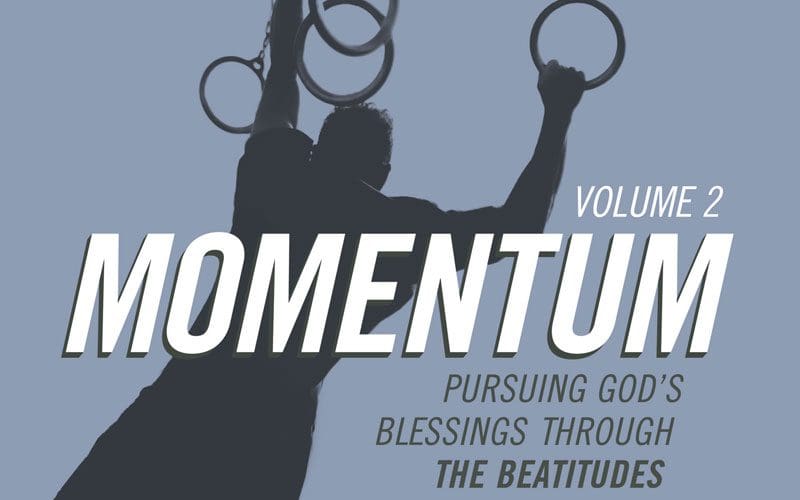
The Hike
Alien
Daniel 1:1–21

The story of Daniel is about one of God’s people in an alien land, and it shows us how to live in a secular and materialistic culture. Daniel was one of a small group of talented students who were taken to Babylon after the first siege of Jerusalem. He would have been a teenager when he arrived, and he remained in Babylon for the rest of his life.
When our family first came to the United States, my wife, Karen, taught kindergarten at a Christian school. One day the children were sitting on the rug talking about the presidential election. Karen told them that she would not be voting and asked them why they thought this might be.
“Is it because you are too old?”
“Is it because you are teaching us?”
“Is it because you have a meeting to go to later?”
Eventually a bright child asked, “Is it because you come from England, Mrs. Smith?”
“Yes,” said Karen, “and do you know what they call me? A resident alien.”
Two weeks later, when the children were sitting on the rug for their morning prayer time, one little girl began to pray for my wife: “Dear Lord, please help people to stop calling Mrs. Smith a resident alien. It’s really not very nice!”
Aliens with a Heavenly Passport
The Bible uses the word aliens or sojourners to describe God’s people (1 Peter 2:11). You do not belong to this world in a permanent way. You belong to another city “whose designer and builder is God” (Hebrews 11:10), and you cannot understand your life in this world until you have grasped that this is not what God created you for.
If you are a Christian, you are like a person who carries two passports. One of them will expire, because when Christ returns, the nations to which we belong will be relegated to history. But your passport as a citizen of heaven will never pass away. It will remain forever.
The art of the Christian life is to live in this world without being consumed by it. We are to use our short lives here to prepare for the eternal life that is to come.
Teenager Abducted!
Imagine Daniel sitting at his school desk in Jerusalem. There is a knock on the door. A moment later, three soldiers from Nebuchadnezzar’s army burst in, and Daniel is taken seven hundred miles to Babylon. His parents are distraught, and there’s nothing they can do to stop it.
But when Daniel arrives in Babylon, he finds that far from being abused and imprisoned, he is treated like royalty and enrolled in a top-flight school. He has been selected to participate in a premier education program that will fast-track him into the king’s service. If he plays his cards right, he will land a top job in Babylon.
The Pressure to Conform
Having grown up under the influence of godly people, Daniel was placed in a new environment where he was completely anonymous. Those who travel know all about this pressure. When you get on a plane or check into a hotel, nobody knows who you are. You can be whoever you want to be, and that brings its own pressure.
Daniel was placed under the care of a tutor called Ashpenaz, who was assigned to teach him the literature and language of the Babylonians (Daniel 1:4). Back in Jerusalem, Daniel would have studied Hebrew and learned the Bible. But the Bible was not on the curriculum in Babylon.
Instead, Daniel was exposed to a whole spectrum of learning, most of which would have been in direct conflict with what he had been taught from the Bible as a child. By filling Daniel’s mind with Babylonian learning, Ashpenaz was attempting to erode Daniel’s distinctive faith in God, so that at the end of three years in college, he would emerge with a thoroughly Babylonian worldview. He would still be Jewish, of course, but he would think and act like a Babylonian.
In addition to the challenges of the curriculum, Daniel would face pressure from his tutor and from other students: “How can you seriously believe that your God is the only God? How can you possibly think that you are the only one who has the truth?” Christian young people face the same pressure in secular universities today.
Parents are sometimes distressed over what their children are taught in school. Students are often studying literature that directly contradicts the truth. But this is nothing new. It is exactly the situation that Daniel faced, and God has given us a model of how to stand against that pressure. Far from overwhelming him, Daniel’s secular education was actually the making of him. In the goodness of God, it became the anvil on which his faith was hammered into maturity.
A Taste of the High Life
Throughout their history, God’s people lived under two very different kinds of oppression. Pharaoh’s plan was to persecute God’s people. He was ruthless and subjected them to hard labor. Satan uses the same tactic today in many places where Christians are persecuted for their faith.
But Nebuchadnezzar’s plan was more subtle. His strategy was to absorb God’s people into the culture of Babylon, opening doors of opportunity for them and putting them on the fast track to success.
The enemy of our souls is still using the tactics of Nebuchadnezzar, and they are proving very effective. The strategy is simple: First, intoxicate the people of God with the sheer fascination and splendor of this world. Second, erode their distinctive practices and values until they are so assimilated into the culture that their distinctive calling to live for the glory of God is overwhelmed.
Daniel was offered “a daily portion of the food that the king ate” but he “resolved that he would not defile himself with the king’s food” (1:5, 8). Some suggest that this had to do with Jewish food laws, but I think Daniel discerned that Nebuchadnezzar wanted to lure him with the opportunities of life in Babylon. And he was determined that this would never happen. He would live, serve, and prosper in Babylon, but he would never allow Babylon to capture his heart.
Daniel needed a way of keeping this fixed in his mind. So he chose to establish a discipline for himself. He turned down the offer of a daily visit to the top restaurant in town and ate a brown bag lunch of vegetables instead. He did not do this because of some external law, but because of an internal desire. It was a voluntary discipline, designed to remind him of his own distinctive calling.
Are you being realistic about the pressures the world places on you? Every day you are bombarded by a view of life that is self-centered and has no room for God. You need a strategy for resistance.
Cultivating the Ability to Say No
Like Daniel, we need to cultivate the ability to say no to ungodliness (Titus 2:11–12), and that begins with the small stuff.
Some Christians operate as if there were only one question to be answered in the practical decisions of life. We ask, “Is it right or wrong?” and unless it’s illegal or immoral, we eagerly affirm our liberty to enjoy. But there is another question to ask of things that come within our area of freedom: “Is it wise?”
What entertainment should you choose? What parties should you go to? What company should you keep? On what should you spend your money? Daniel’s example reminds us that as we make these decisions, we need to consider the long-term potential of being sucked into the values and lifestyles of the world.
Daniel could not change what they taught him at school, but he could create a space in his life that was a daily reminder to him that he was a servant of God.
Faithful and Successful
God gave Daniel and his friends great success in their studies. He “gave them learning and skill in all literature and wisdom” (Daniel 1:17).
Faithfulness and success need not be alternatives; they are natural partners. Daniel had proved faithful in small things, and God trusted him with greater things. He was appointed to a premier position within the most powerful government of his day.
Never imagine that faithfulness to Christ means settling for small things. Daniel proved that he could be trusted. He was faithful to God, and the Lord opened the door of opportunity for him. He became second-in-command to the king of Babylon, and he was given influence beyond what he had ever dreamed.
Like Daniel, Jesus faced the seductive enticements of the world when He was tempted, and He faced the open hostility of the world on the cross. He triumphed over both and was able to say to His disciples, “Take heart; I have overcome the world” (John 16:33).
Opened
Daniel lived a godly and successful life in an affluent and ungodly culture by exercising voluntary restraint. God does not call us to lives of austerity, but undisciplined indulgence erodes godliness.
The attractions of wealth, power, and pleasure are strong and can easily capture your heart. What you need is a love for God that is stronger. As love for Christ fills your heart, it will increasingly expel the lesser loves that would otherwise take you captive.
Daniel 1:1–21
Daniel Taken to Babylon
1 In the third year of the reign of Jehoiakim king of Judah, Nebuchadnezzar king of Babylon came to Jerusalem and besieged it. 2 And the Lord gave Jehoiakim king of Judah into his hand, with some of the vessels of the house of God. And he brought them to the land of Shinar, to the house of his god, and placed the vessels in the treasury of his god. 3 Then the king commanded Ashpenaz, his chief eunuch, to bring some of the people of Israel, both of the royal family and of the nobility, 4 youths without blemish, of good appearance and skillful in all wisdom, endowed with knowledge, understanding learning, and competent to stand in the king’s palace, and to teach them the literature and language of the Chaldeans. 5 The king assigned them a daily portion of the food that the king ate, and of the wine that he drank. They were to be educated for three years, and at the end of that time they were to stand before the king. 6 Among these were Daniel, Hananiah, Mishael, and Azariah of the tribe of Judah. 7 And the chief of the eunuchs gave them names: Daniel he called Belteshazzar, Hananiah he called Shadrach, Mishael he called Meshach, and Azariah he called Abednego.
Daniel’s Faithfulness
8 But Daniel resolved that he would not defile himself with the king’s food, or with the wine that he drank. Therefore he asked the chief of the eunuchs to allow him not to defile himself. 9 And God gave Daniel favor and compassion in the sight of the chief of the eunuchs, 10 and the chief of the eunuchs said to Daniel, “I fear my lord the king, who assigned your food and your drink; for why should he see that you were in worse condition than the youths who are of your own age? So you would endanger my head with the king.” 11 Then Daniel said to the steward whom the chief of the eunuchs had assigned over Daniel, Hananiah, Mishael, and Azariah, 12 “Test your servants for ten days; let us be given vegetables to eat and water to drink. 13 Then let our appearance and the appearance of the youths who eat the king’s food be observed by you, and deal with your servants according to what you see.” 14 So he listened to them in this matter, and tested them for ten days. 15 At the end of ten days it was seen that they were better in appearance and fatter in flesh than all the youths who ate the king’s food. 16 So the steward took away their food and the wine they were to drink, and gave them vegetables.
17 As for these four youths, God gave them learning and skill in all literature and wisdom, and Daniel had understanding in all visions and dreams. 18 At the end of the time, when the king had commanded that they should be brought in, the chief of the eunuchs brought them in before Nebuchadnezzar. 19 And the king spoke with them, and among all of them none was found like Daniel, Hananiah, Mishael, and Azariah. Therefore they stood before the king. 20 And in every matter of wisdom and understanding about which the king inquired of them, he found them ten times better than all the magicians and enchanters that were in all his kingdom. 21 And Daniel was there until the first year of King Cyrus.
(ESV)
Use these questions to further engage with God's Word. Discuss them with another person or use them as personal reflection questions.
Take the First Step to Open Your Bible
Join 35,000+ people who get ‘Open Today’. Every Wednesday you’ll get resources designed to inspire, encourage, and challenge you in opening your Bible.
Spend 31 days in Psalm 23 with this new book from Pastor Colin Smith for your gift of any amount in April!


